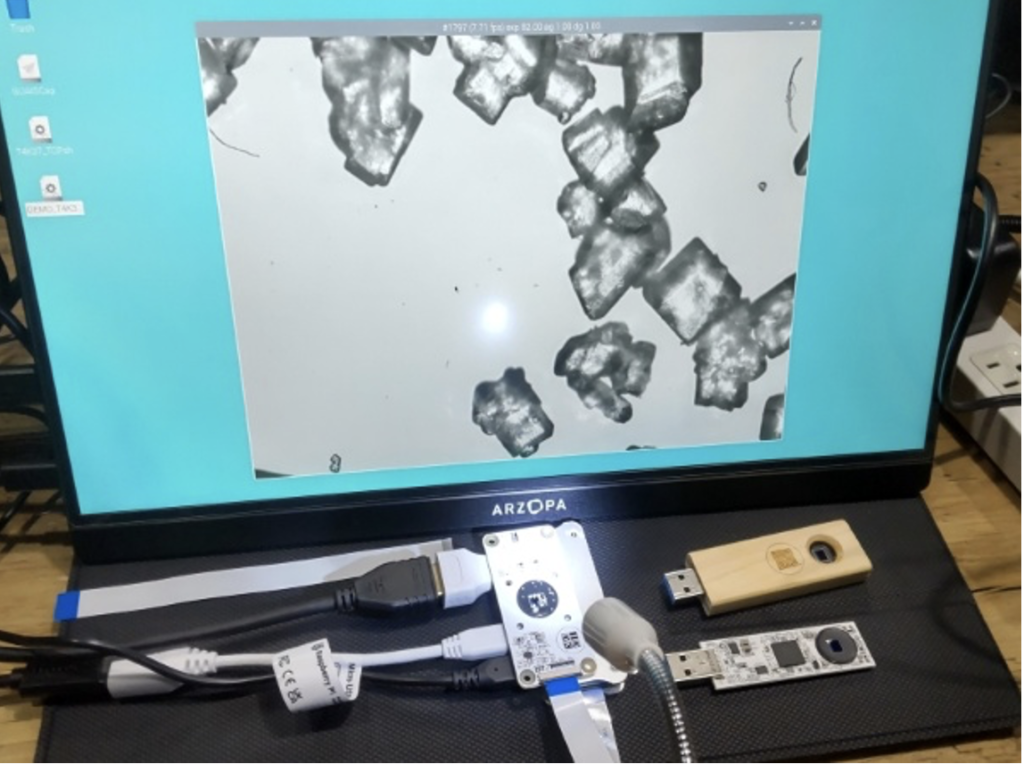https://bio.nikkeibp.co.jp/atcl/news/p1/22/12/21/10284/
https://iddk.co.jp/app-def/S-102/iddk_wp/?page_id=3846&lang=en
The Tokyo-based startup IDDK has developed and commercialized a new microscope that combines optical and semiconductor technologies. A sample is placed on the black part in the center for observation. In the back is the base for controlling the microscope including peripheral devices.
With a resolution of 1.2 µm, it is said to have sufficient observation capability to identify microorganisms and cells.
The company is currently trying to create a bio-experiment system in a space environment. The project aims to build a model in which a 10-cm cubic volume is the smallest unit of an experiment system, in which an automated experiment system is built, launched into space, and data is collected. The company also aims to reduce the cost per experiment to about 1 million yen in the future, so that a variety of experiments can be conducted in space without limiting the number of experiments to those with a high probability of success.
On December 19, 2022, the company announced that it had formed a business alliance with the British company Space Forge, which is involved in the construction of experimental environments on satellites. Space Forge is planning to launch a demonstration bio-experiment facility into space in the first half of 2023, and in the following year, in 2024, the facility will be loaded with experimental equipment. In the following year, 2024, the company plans to launch the spacecraft with the experimental equipment on board and conduct a demonstration experiment.
Foto from IDDK

